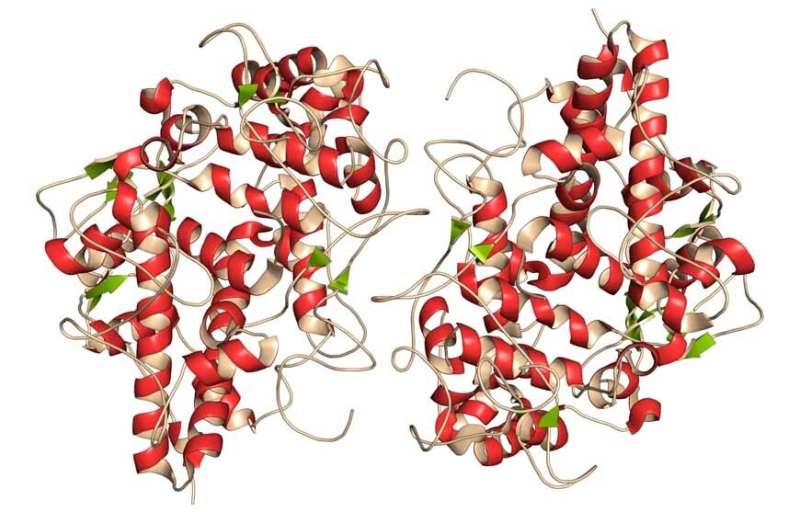Antimicrobial protein implicated in Parkinson's disease

An immune system protein that usually protects the body from pathogens is abnormally produced in the brain during Parkinson's disease, scientists from Sanford Burnham Prebys report. The discovery, published in Free Radical Biology & Medicine, indicates that developing a drug that blocks this protein, called myeloperoxidase (MPO), may help people with Parkinson's disease.
"Prior to this study we knew that MPO was a powerful oxidizing enzyme found in white blood cells used to protect us from microbial infections," says Wanda Reynolds, Ph.D., senior author of the study and adjunct associate professor at Sanford Burnham Prebys. "This is the first time that scientists have found that MPO is produced by neurons in the Parkinson's disease brain, which opens important new directions for drug development.
Parkinson's disease occurs when the neurons that control movement are impaired or destroyed. Over time, people with the disease lose mobility. The disorder affects men more than women; most people develop the disease around age 60. Currently available medicines address the disease's symptoms, not the root cause. There is no cure.
"For this research we compared brain samples from people who had succumbed to Parkinson's disease to those from normally aged brains," says Reynolds. "We found that MPO was only expressed in neurons in people who succumbed to Parkinson's disease—and not the healthy samples.
"We then created unique mice that modeled Parkinson's disease and expressed MPO. These mice accumulated toxic, misfolded proteins in the brain. Additionally, the MPO produced in the brain had an altered shape. As a result, instead of being stored inside neurons, MPO is capable of being ejected from the cell and cause further brain damage. We also found that MPO was located preferentially in the memory-associated regions of the brain—the cortex and hippocampus—indicating it plays a role in memory disruption."
Reynolds and her team are already working to develop an MPO inhibitor, which they hope will slow the progression of Parkinson's disease. Based on Reynold's previous research showing that MPO is abnormally expressed in the Alzheimer's disease brain, an MPO inhibitor may also hold potential as an Alzheimer's disease treatment.




















